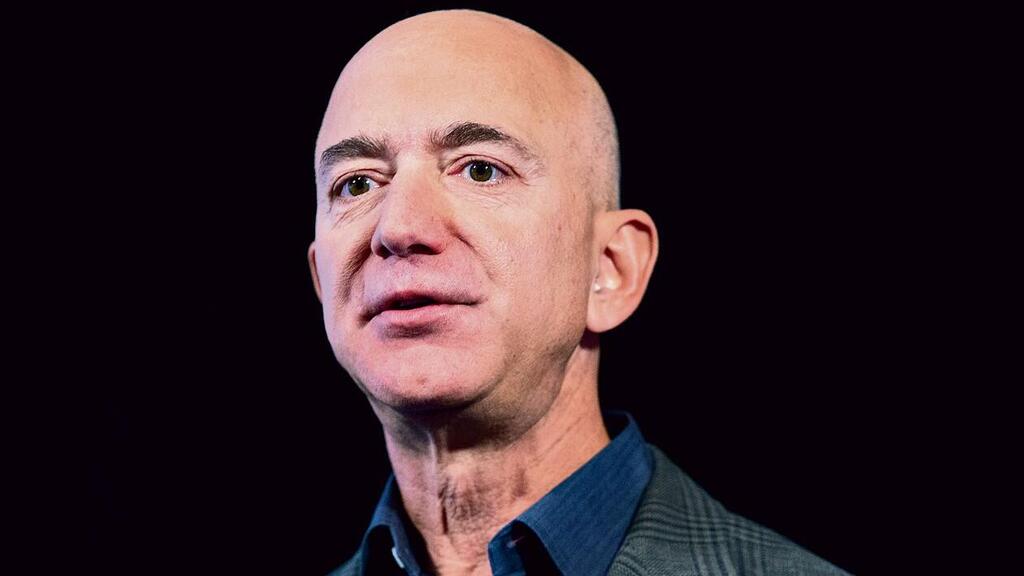Bezos Earth Fund, Amazon founder Jeff Bezos's climate initiative, has opted against investing in the establishment of a food tech excellence center in Israel amid the ongoing war.
Both the Technion Institute of Technology and the Hebrew University submitted proposals to Bezos Earth last year, receiving praise for their innovative ideas. However, the fund recently notified the research teams that providing such a substantial grant for such a center is not feasible due to the current war-related uncertainty.
Andy Jarvis, the director of Future of Food at Bezos Earth, visited Israel last September and met with researchers from the Technion and the Hebrew University who showcased the groundbreaking work done in the alternative protein field. Plans for an excellence hub were discussed, with Bezos Earth intending to invest $30 million alongside a $70 million investment from the chosen university over five years, totaling $100 million for the center.
In an email obtained by Calcalist and sent by Jarvis to the teams of researchers and the Good Food Institute, which managed the call for proposals in Israel, he wrote: "Thank you again for all the time and effort you put into developing an impressive proposal for an Alternative Protein Center of Excellence, and also for hosting my visit back in September and showing me the wonderful things you are up to on alternative proteins. I was awed to see such a robust ecosystem for alternative proteins developing in Israel during my visit and have been enthusiastic about the prospect of a Center of Excellence in the region. The feedback from November’s evaluation panel was that both Israeli proposals would be poised to make phenomenal contributions to the sector.”
However, the many compliments were concluded by disappointment. Jarvis wrote: “Unfortunately, the events of October obviously have had an effect. Given the uncertainty around the war at the current time, such a large and significant grant for a Bezos Center is not a viable option for us in the current situation. We’ll monitor the situation, and should the situation dramatically improve, we will of course be in touch."
The Bezos Earth Fund, committed to investing $10 billion in addressing climate crisis-related issues by the decade's end, announced a $60 million pledge this year to establish university centers for sustainable protein research. The aim is to mitigate environmental damage caused by animal-based food consumption and enhance the quality and availability of plant-based protein-rich foods. Although no center will be established in Israel for now, Bezos's fund has begun setting up centers elsewhere globally in 2024, leaving Israel behind in a field where it currently holds a significant advantage.
In 2023, the alternative protein industry attracted $1.6 billion in investments, followed by another $299 million in the first half of 2024. Total investments in the sector have now reached approximately $16 billion, with about 80% of this influx occurring since the start of 2020. Investment momentum slowed notably in 2023 due to a broader deceleration in high-tech investments.
Between 2021 and 2022, over a billion dollars of private investment flowed into Israel, solidifying its position as the world's second most prominent center for startups and investments in the sector, trailing only behind the U.S. Israel has become home to cutting-edge startups in the field, including cultured meat companies like Aleph Farms from the Technion and alternative protein ventures such as Redefine Meat.
Israeli universities reacted to the news with understandable disappointment. Prof. Benny Chefetz, head of the Department of Soil and Water Sciences of the Robert H. Smith Faculty of Agriculture, Food and Environment of the Hebrew University, said: "This is a loss for Israeli research and innovation. The center was supposed to lead research innovation not only in the context of the development of technology and products but also to address the issue of reducing costs for the consumer, reducing the carbon footprint, and improving nutritional value. If until now we have seen the humanities and social sciences suffer because of the war, this is the first time that we have encountered such a blatant refusal due to the war. The email we received describes in the most simple and cruel way the reality of Israeli academia and research these days: people don’t want to invest in Israel at this time and this also raises concerns going forward.".
The Technion said in response: "The State of Israel and the Technion in particular are indeed among the world leaders in the field of alternative proteins. However, the Technion does not discuss private correspondence publicly."
GFI Israel stated: "Israel is at the forefront of research in this field thanks to a unique combination of technology and advanced thinking, and thus we will continue to be at the forefront of the effort to create a safe and sustainable food ecosystem. We are happy to support the efforts of the Bezos Earth Fund and to be partners in the activities of universities to establish research institutes. We hope that this will be possible as soon as possible."




